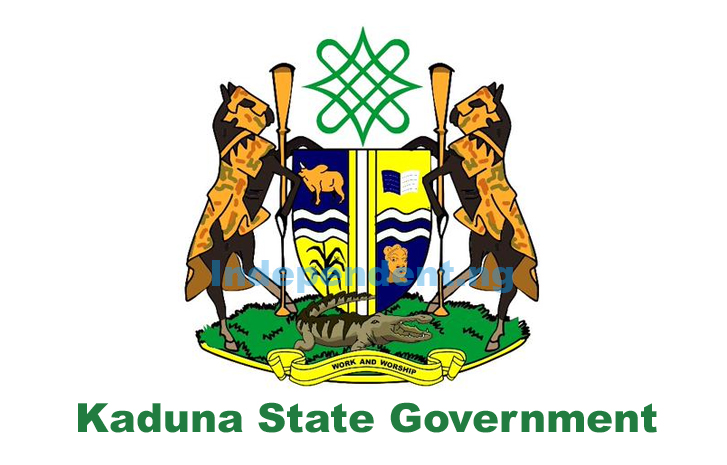How Kaduna is tackling housing deficit with free land
Our correspondent gathered that Nurus Siraj presently has built 500 units of houses; Ummi 100, Triple A 86 and Gidan Iyali 588.

As the housing deficit continues to soar in the country, the Kaduna State Government has entered into Public-Private Partnership (PPP) with several housing estate developers to build affordable mass housing units for residents to close the gap.
To achieve this, the state government has made land available to estate developers, with the major developers being Nurus Siraj, Ummi, Kagara Place, Triple A Homes, Gidan Iyali, among others.
- How fake news hurts reporter/editor relationship in newsrooms
- I intend to start a political revolution from Katsina – Sen. Yar’adua
Our correspondent gathered that Nurus Siraj presently has built 500 units of houses; Ummi 100, Triple A 86 and Gidan Iyali 588.
Daily Trust reports that in the last few years, the state has witnessed the influx of various housing estates, especially in the Millennium City, and others in the Kamazo area of Kaduna, the state capital.
The houses have one, two, three and four-bedroom duplexes – detached and semi-detached – all aimed at providing affordable houses for medium and low-income earners in the state.
Prior to the PPP, Gov Nasir El-Rufai remarked that, “There is a 17 million housing deficit in Nigeria to which Kaduna State contributes five per cent. We need over 30,000 housing units to satisfy the needs of residents of the state. As you know, the Minister of Finance has launched the Family Homes project across the states. 5,000 hectares have been allocated to the federal government to build low and medium-income housing.
“These projects are Public-Private Partnership (PPP), but we make the houses cheap by ensuring that we give land to the developers for free. So, they don’t pay the premium and all the charges. These are all part of effort to make the houses affordable; not just for the civil servants, but also for every other citizen, because the civil servants form only one per cent of our population.”
For the Chief Executive Officer (CEO) of Triple A Homes and Mortgage Consultancy Limited, Salisu Nayaya Muhammad, the initiative adopted by the state government is a welcome development, stating that his company, located on Yakowa Road in Kamazo, has 86 housing units comprising two and three-bedroom houses at affordable prices.
Muhammad who noted that the business had been tough, especially when it came to the issue of land, titling and capital, said, “The government can support serious developers with financing as it will go a long way in bridging the deficit.
“Triple A Homes was able to secure six hectares through a PPP platform made available by the Kaduna State Government. The government provides the land and we, the developers, provide the houses. If this policy could be adopted across the country, it will further help in addressing the housing deficit in the country.”
The developer lamented that the supply side had always been a problem “because people have to get loans and other things before they are able to buy the houses; that is why the developers endeavour to come up with payment options that can meet their finances.”
On the major challenges facing the initiative, getting building materials top their worries, hence Muhammad said, “When we in a market that is so erratic, prices keep shifting and at the end of the day you cannot really peg a price because you cannot keep shifting your goalpost when you have already come out, so the rate at which the market in terms of prices shifts is really challenging. Today the price of cement has moved to N3,800 when it was just N2,600 a while ago, and it has a major impact on our pricing.”
He pointed out that, “In Kaduna, if you come out and build a three-bedroom house for N10m, who will buy it? At the beginning, in 2018, our houses were sold for N6.8m, but over the cost of duration, it had to go for N8m.”
On ways the government can improve housing development, Muhammad said, “When serious developers come, I think the state government can help with a bit of financing because we also have to get money from the market with high interest rates because nobody is going to give you money and not see you do anything.”
He said another challenge was developers who did not have capacity, and therefore urged them to partner with people who had capacity to achieve their set goals.
Also, the Project Officer of Kagara Palace, Elisha Bagaiya, said the project they had in the city was a PPP between the government, ARBICO Plc and First Investment Development Company (FIDC), the consultants and developers respectively.
Mr Bagaiya revealed that it was a 512-unit housing estate comprising three and two-bedroom semi-detached bungalows.
He explained that, “Currently, we are in phase one; which is a total of 94 units. The whole idea is to make housing available to low-income earners.”
Highlighting some challenges, Mr Bagaiya said, “Materials supply is one key thing in construction, and because of the nature of the roads, it was difficult for us to get our materials to site at the beginning.”
He disclosed that to help the low-income earners afford the houses; there was a mortgage option to make payment easier.
